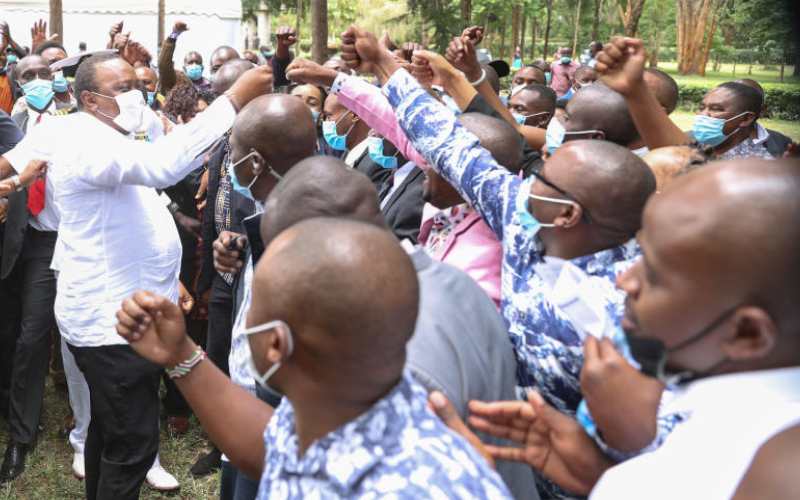
President Uhuru Kenyatta is having major problems in his political “backyard.” On Thursday, legislators from the wider Mt Kenya region penned a letter in which they outlined grievances against the Jubilee administration. The most pressing of their grievances included concerns about the state of the economy, the public health crisis due to Covid-19, and the government’s apparent unwillingness to address these twin challenges with the seriousness they deserve.
The legislators are spot on. Their only mistake was to limit their grievances to one region. Throughout the country, businesses have closed due to unpaid bills by the government. Public services have ground to a halt because of mismanagement of cash flow by the Treasury. Poor services plague all critical sectors, including healthcare and education. And to add insult to injury, grand theft of public resources continues unabated. Kenyatta himself acknowledged that his administration loses Sh2 billion a day to corruption.